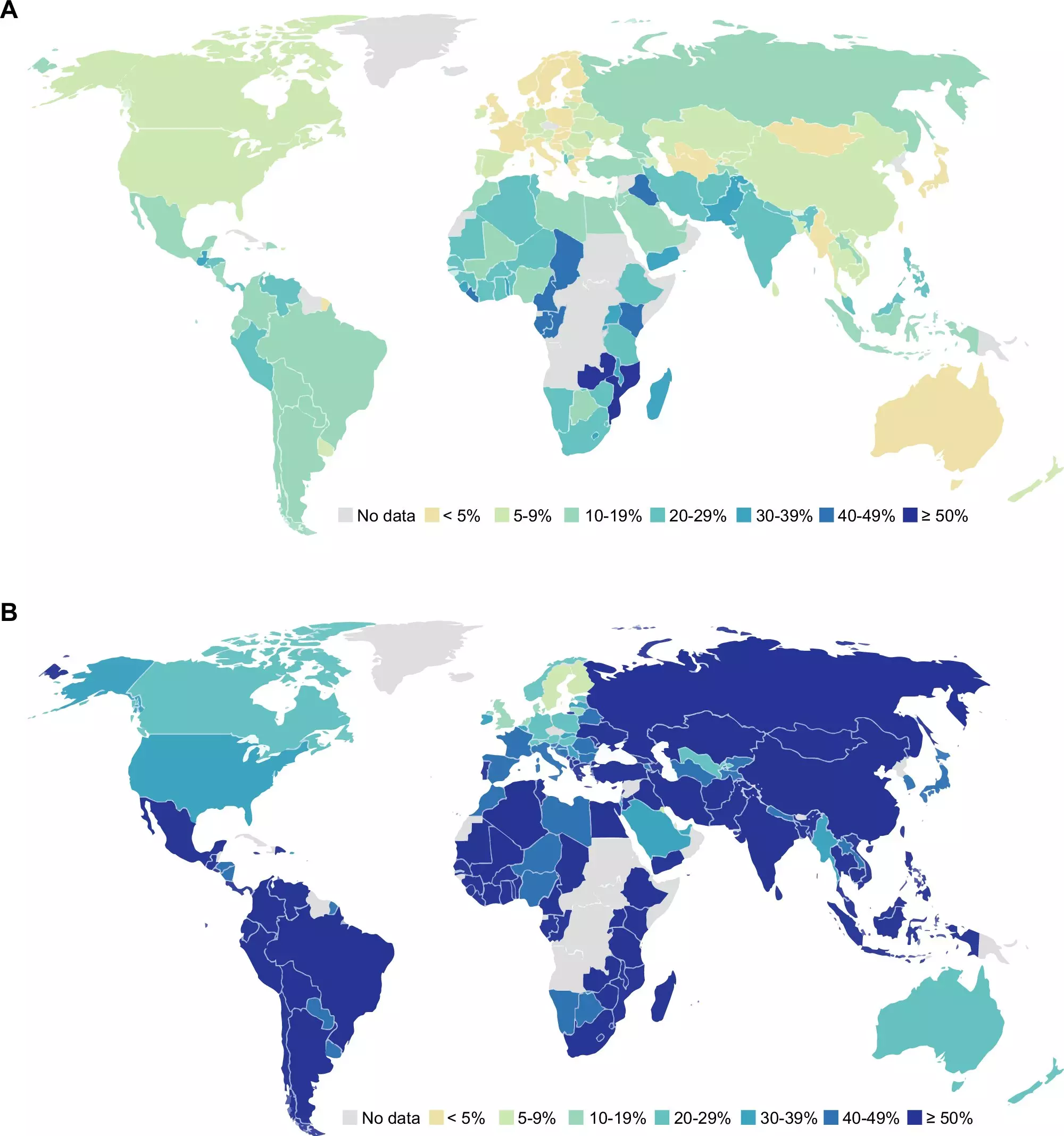Recent findings from a comprehensive study reveal a significant global concern regarding the safety of drinking water. Over half of the adults surveyed internationally fear that their drinking water may pose serious health risks within the next two years. Conducted by experts from Northwestern University and the University of North Carolina at Chapel Hill, this research sheds light on the troubling perceptions surrounding drinking water, as articulated in the study titled “Self-reported anticipated harm from drinking water across 141 countries,” published in the prestigious journal Nature Communications.
Perception is arguably one of the strongest factors influencing behavior, particularly when it comes to public health. When individuals believe their water supply is unsafe, it triggers a cascade of negative consequences. Sera Young, an esteemed professor of anthropology and global health, emphasizes the dire implications of this mistrust, noting that individuals may resort to costly alternatives, such as buying bottled water, which exacerbates environmental issues and leads to unhealthy dietary choices. This behavior serves to highlight a critical intersection between personal health, financial burdens, and environmental sustainability.
The repercussions of perceived water insecurity extend beyond the immediate issues of hydration and nutrition. Individuals believing they consume unsafe water experience heightened levels of psychological distress and face increased risks for mental health conditions, such as depression. This phenomenon not only affects individual well-being but also places additional strain on healthcare systems that must address both physical and mental health challenges born from the fears associated with contaminated water.
Young’s multifaceted involvement in initiatives related to sustainability and policy underscores the importance of this topic. Her insights reflect a growing recognition that ensuring water safety involves more than merely meeting regulatory standards; it requires cultivating public confidence in these measures.
Utilizing a representative dataset comprising responses from 148,585 adults across 141 countries obtained in the 2019 Lloyd’s Register Foundation World Risk Poll, the study found alarming trends in anticipatory harm perceptions related to drinking water. Notably, the experience was not uniform; with Zambia reporting the highest anticipated harm levels and Singapore the lowest. On average, a staggering 52.3% of participants expressed a fear of water-related health risks.
Interestingly, the research identified demographic factors influencing these perceptions. Women, urban residents, those with higher educational backgrounds, and individuals facing economic difficulties were particularly prone to anticipating harm from their water supplies. This raises important questions about the sociocultural elements that underpin these perceptions, including how education may empower individuals to be more discerning about water quality-related issues and their potential risks.
Moreover, the study highlighted a surprising correlation: higher scores on the Corruption Perception Index (CPI) correlated more strongly with fears about drinking water safety than traditional considerations such as infrastructure or economic metrics like GDP. This connection suggests that systemic integrity plays a crucial role in shaping public attitudes, reinforcing the idea that transparency and trustworthiness within government systems significantly affect public health perceptions.
Shockingly, the study indicates that in countries with access to fundamental drinking water services—including the United States—individuals still harbor substantial uncertainties about their water safety. In fact, 39% of Americans surveyed expressed fears of serious health risks associated with drinking water. This pervasive anxiety calls for urgent action.
The researchers advocate for a multifaceted approach to restoring public confidence in drinking water supplies. Suggested measures include improving the accessibility of water testing, providing transparent results, tackling aged infrastructure like lead pipes, and offering filters in homes where contaminants are present. These strategies aim to create a sense of security among consumers by ensuring that they have access to safe drinking water and reliable information.
Aaron Salzberg of the UNC Gillings School of Global Public Health posits that these findings can catalyze increased political attention toward sustainable water resource management. Creating effective policies and plans for providing safe drinking water aligns with the broader goal of universal water accessibility—a fundamental human right that remains elusive for many.
Ultimately, this study serves as a clarion call to action for public health officials, policymakers, and the community at large. Restoring trust in drinking water safety requires a coordinated effort to deliver not just safe resources, but also the assurance that such resources can be relied upon for health and well-being. As the world stands at this critical juncture, it becomes increasingly evident that the health of individuals and the integrity of water systems are intimately intertwined, urging a response that is both immediate and sustained.


Leave a Reply